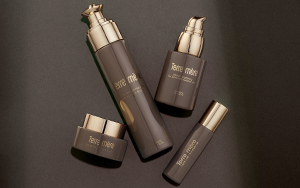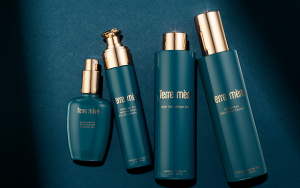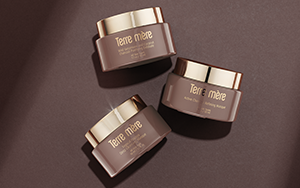
This question has been asked for years by consumers and manufacturers alike. The definition isn’t clear-cut, but certain skincare companies are beginning to pave the way towards some answers.
As it happens, there is no one definition of sustainable skincare. There’s no legal definition for it, nor is there a comprehensive industry standard for sustainability. In the U.S., the law doesn’t require cosmetic products and ingredients, other than color additives, to have FDA approval before they hit the market. That means that “sustainability” can be very loosely defined in the skincare industry — but individual companies are taking it upon themselves to define the term and create new products that are better for your skin and better for the environment.
How Are Sustainable Cosmetics Made?
It’s largely agreed upon that sustainable skincare products are created with ingredients that don’t harm the planet or people. They’re formulated with natural ingredients produced from renewable and raw materials, both of which have less of an environmental impact than non-renewables do.
Raw materials might include natural oils such as argan or avocado oil, agricultural products like soybeans and corn, and even bacteria used to create natural aromatic ingredients and pigments. To create sustainable cosmetics, manufacturers split these raw materials into oleochemicals (chemicals created from plants or animals) to isolate each ingredient before adding them into various skincare formulations.
Remember: just because a product is sustainable, doesn’t mean that it’s vegan or adheres to other quality standards you might be looking for. Always read the ingredients label or check in with the manufacturer directly if you’re unsure about certain ingredients!
What To Look Out For: Not-So-Sustainable Skincare
The list of ingredients that don’t belong in sustainable skincare products could go on and on. Here are a few of the top offenders that should never appear in a sustainable skincare product.
Why Sustainable Skincare?
The future is now. In order to preserve and protect that future, we have to do our best to continue creating and consuming sustainable products. Our livelihoods depend on it — and the cosmetics industry can help shift the tides.
Conventional cosmetics take a huge toll on the Earth’s well-being. Considering that packaging alone sends tons of plastic into the oceans and landfill, it’s bad enough that formulations themselves can contain harmful ingredients, like those listed above. Sustainable skincare keeps plastic, heavy metals, and toxic chemicals out of our waterways, soil, and atmosphere, preserving the well-being of our environment.
Sustainable skincare is not only beneficial to the environment; it also promotes the health of its users. Non-toxic, sustainable ingredients don’t disrupt endocrine systems or spur tumor growth. They work with the human body instead of against it — a win-win for both people and the planet.
Ingredients formulated from natural sources are also more effective in the long run than their conventional counterparts. They’re less likely to cause skin irritation or allergic reactions, and they harness the natural properties of plants and other natural sources for their potent effectiveness. Humans have been using sustainable and natural ingredients for centuries, and there’s no reason we should stop now!











